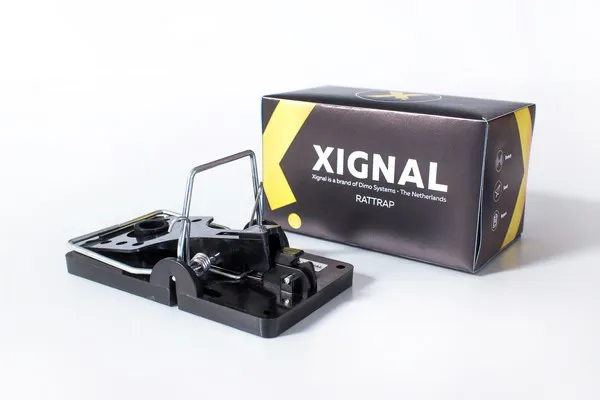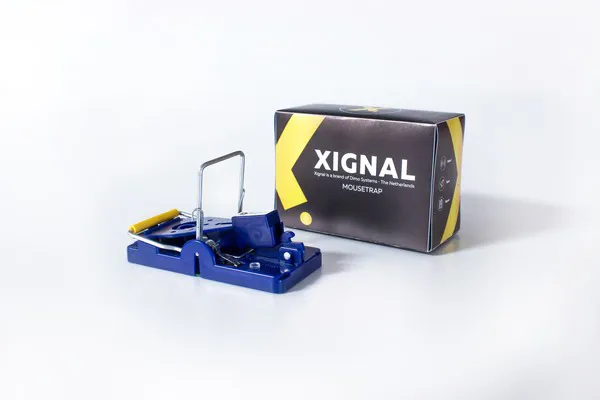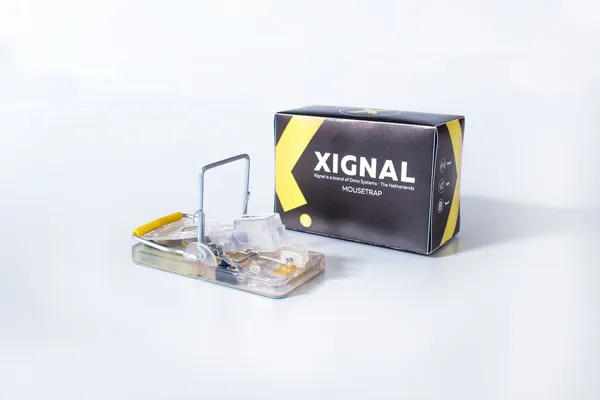 In the Netherlands, rat poison has been banned for outdoor use as pest control since 2018. Soon, a European ban on the use of this poison will follow. The rat and mouse nuisance, however, threatens to only increase in the coming years.
In the Netherlands, rat poison has been banned for outdoor use as pest control since 2018. Soon, a European ban on the use of this poison will follow. The rat and mouse nuisance, however, threatens to only increase in the coming years.
That is what the Dutch Animal Infestation Knowledge and Advice Centre reported in 2019. Time to get old-fashioned mousetraps out of storage. For those who do not have these or want to buy new ones, Dimo Systems has designed a high-tech mousetrap - the Xignal.
The trap's design remains simple. The use of software and a dedicated online platform is something new to the relatively conventional pest control sector. We asked Peter Mouthaan, Dimo Systems' General Manager, why a mousetrap needs software such as this.

"Say you have a mousetrap in your shed. It is easy enough to check it every day," says Peter. "But for a large company, they often have hundreds of them. Then it is no longer so easy to check for caught rats and mice every day. The Xignal mousetrap emits a signal if a rodent gets caught. This is sent to your phone, computer or tablet. You can see exactly when the rat was trapped so you can then quickly clear and ready the trap anew. That is also more hygienic. In conventional traps, a mouse or rat could still often be trapped, dead, for a week. That attracts other pests."
Dimo Systems sells these high-tech rodent traps in two sizes. They do not only work by emitting a signal to the controller. They also use a scent box to lure pests. "That is more hygienic than using the old-fashioned blocks of cheese too. It does not go moldy either. We don't have just these traps, but several other sensor solutions too, with which you first locate the pest, and then you can buy the traps."

"This is not just saving someone having to check all the traps," says Peter. "Your data is also readily available for random checks. These are done by the Dutch Food and Consumer Product Safety Authority and other authorities. You can show which traps you have and what they yielded. You can then also prove that you are controlling these pests in a targeted manner. The data will show where the most rodents were caught."

The Coronavirus outbreak makes Peter consider the use of these traps as more necessary than ever. "Restaurants and other businesses are closed. These creatures are more of a problem now since there are no people there to frighten them off. They have free rein in these closed businesses. We also want to prevent people from having to call an exterminator. That would mean too much close contact, considering the social distancing we must observe now."
"These critters do not only plague restaurants. We have noticed that everyone in the fruit and vegetable sector is affected - from vegetable processors and packing facilities to potato farmers' storage areas and wholesale warehouses. All the while businesses can no longer use poison," concludes Peter.
For more information: Dimo Systems BV
Dimo Systems BV
Marleen Coopmans
10 Rondgang
5311 PB, Gameren, NL
Tel: +31 (0) 885 300 400
Mob: +31 (0) 682 949 868
Email: info@dimosystems.com
Website: www.dimosystems.com
